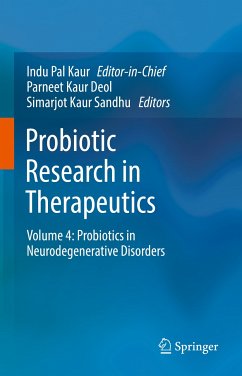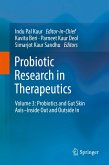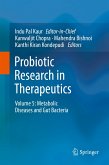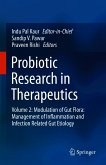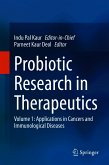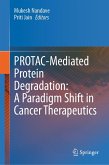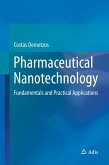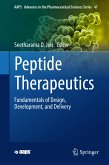Humans have numerous microorganisms residing in the body, especially in the gut, far exceeding the human body's normal mammalian cells. Recent research links the gut microbiome, the population of microorganisms living in the gastrointestinal tract, with brain diseases. This volume explores the concept and possibility of its extension to manage a galaxy of CNS diseases, including Parkinson's, Alzheimer's, Autism spectrum disorders, depression, insomnia, and chronic fatigue syndrome. This volume elaborates about communication channels between gut and brain via the vagus nerve, short-chain fatty acids including omega acids, and other inflammasomes.
In contrast to the available books on the topic, this title is more versatile and endeavors to bring together scientific pre-clinical, and clinical claims on the probable psychobiotic implication of probiotic therapy. The book will appeal similar to the general public, students, experienced researchers, and academicians. It is endeavored to address an aspect of probiotic usage beyond gut disorders. We hope that it would be helpful to people studying the human nervous system and related conditions with their treatments.
Dieser Download kann aus rechtlichen Gründen nur mit Rechnungsadresse in A, B, BG, CY, CZ, D, DK, EW, E, FIN, F, GR, HR, H, IRL, I, LT, L, LR, M, NL, PL, P, R, S, SLO, SK ausgeliefert werden.

